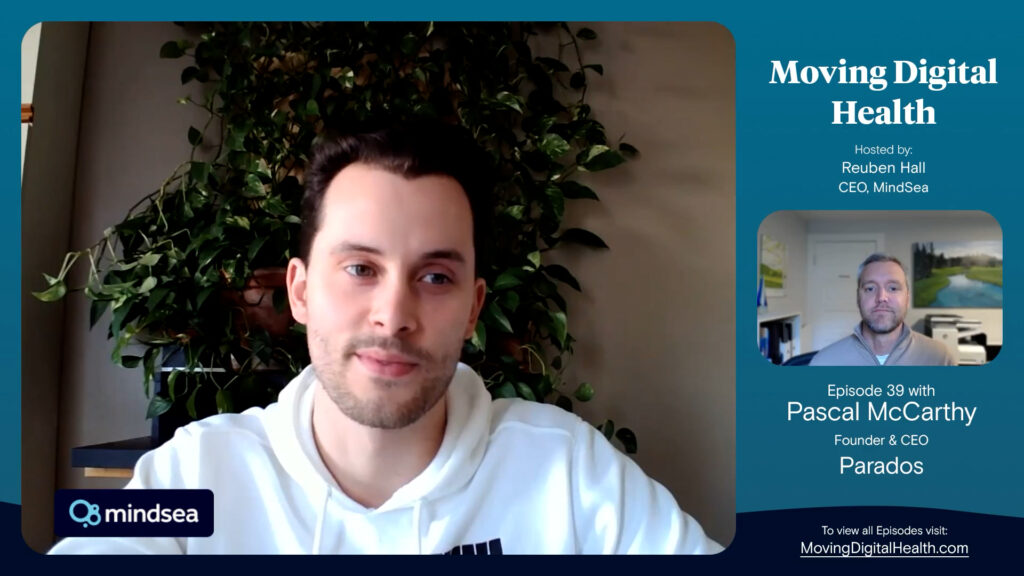About 15 years ago, the Harvard Business Review wrote an article titled “Why Innovation in Health Care Is So Hard.” A lot of its argument was based on the existence of poor technology, insufficient funding, consumer doubt, and general policy issues. Fortunately, most of these are no longer major barriers to creating meaningfully designed digital solutions in healthcare. A lot has changed – and there are more digital health products entering the market than ever before.
What’s more? Product start-ups are no longer spearheaded by just tech wiz-kids or established medical experts. If someone has a great idea, there is likely a place (and a process) for it not only to succeed, but to look good doing it.
Innovation in Health Care
While some of healthcare’s digital advancements have required major shifts in the behavior of many stakeholders – think EHR and patient duplication solutions, or telehealth – others are simply subtle, yet equally important improvements to existing tools and processes.
This is often where non-technical or non-medical innovators play. These founders can bring a unique perspective to how products can work better for end users. As this conversation from a Forbes article points out, “what solves a problem best, is usually not the best technical solution, but whether the solution resonates with users and is easy to use.”
Whether thinking small or big, founders must address and answer the following strategic questions:
- What is our mission?
- Which resources are needed to start and eventually succeed?
- How do we bring our vision to life?
- What’s the value of our idea for organizations and/or patients?
- How do we test our idea in the real world?
- How will we measure success?
The founders who succeed often seek help answering the above questions through collaboration with experts and trusted partners. They also likely remind themselves that incremental innovations, not wholesale changes, can lead to more meaningful gains and broader business ideas.

The same is true when it comes to product design, as we’ve discussed in our blog about how to effectively involve users during the design phase, a process called participatory design.
Healthy starts
So, what kinds of start-ups in our current healthcare landscape are doing all of this? Let’s have a quick look into just some of the non-medical or non-technical founders who are bringing great ideas into the health and wellness space:
First-to-market Fungi:
In recent news, Vancouver-based food manufacturer Big Mountain Foods will be the first to launch a Lion’s Mane mushroom product line across North America beginning this fall. It’s founders, who are not entirely in the health and wellness trade, saw the value in partnering with Sprouts Farmers Market, a leader in gut-healthy foods.
Mushrooms are known to help people who struggle with anxiety and depression. They also stimulate brain cell growth and may be used to potentially prevent damage caused by dementia.
Interestingly, Big Mountain Foods doesn’t take on any investor money and is strictly family-owned and operated.
Improving Health Infrastructure:
This article discusses founders and CEOs with non-technical skills who are shaping the global landscape of Innovation in health care. In this list of mostly non-healthcare startups, there is one profile on founder Stephanie Tilenius of Vida Health Inc., who comes from an economics and finance background.
Though she had no formal tech or healthcare experience, Stephanie fought to build a health infrastructure in support of her father, who had 4 chronic health conditions. From this personal experience, Stephanie became motivated to provide patients suffering from chronic health issues with an on-demand, scalable digital therapeutic platform of expert health coaching and programs from providers and leading medical institutions.
Fully invested
We know that funding in the healthcare space is exploding. But what about for those startups without technical or medical backgrounds? Is establishing funding more difficult? Not necessarily.
This New York based investor has no background in healthcare but has invested over $100 million into many healthcare innovations in collaboration with a physician-led team of entrepreneurs, or “doctorpreneurs.” And many of this year’s top-funded healthcare initiatives involve founders without tech or healthcare experience who’ve collaborated with multiple experts and investment groups.
It may not come as a surprise, but even large companies like Google and Apple are empowering healthcare innovators by investing in areas that may not have access to proper funding:
- Recently, SynsorMed, a digital health and remote care solution, announced it was selected to receive funding from the Google for Startups Black Founders Fund, an initiative designed for Black founders who are building great companies, but are often underrepresented and need more exposure to business opportunities.
- Apple is collaborating with multiple healthcare startups to expand use and impact of smartwatch health features.
On the opposite end of the spectrum, some healthcare startups are expanding capital through crowdfunding! In supporting the evolution of biotech, an investment company named Bioverge embarked on an interesting mission: to accelerate the next generation of truly innovative startups by creating an equity crowdfunding platform that opens up private healthcare investments to everyone.
Come together
If you’re a health tech startup or have a great idea, you may be wondering if and how you can bring it to life. The answer is – yes, you can do this – but you also don’t have to do it alone.
So where do you begin? At any point in the strategic or pre-development process, it is beneficial to collaborate with a dev agency – especially one that has the healthcare experience to match their technical chops.
At MindSea, we can help bring your vision to life and test your product in the real world to gain valuable insights prior to launch.
Let’s create meaningful design solutions for your digital health innovation



